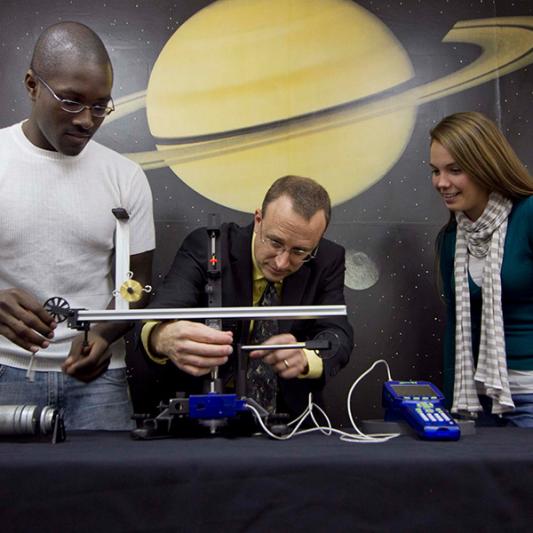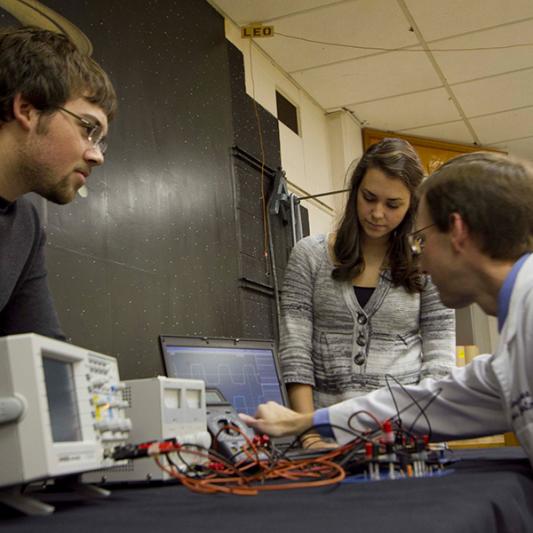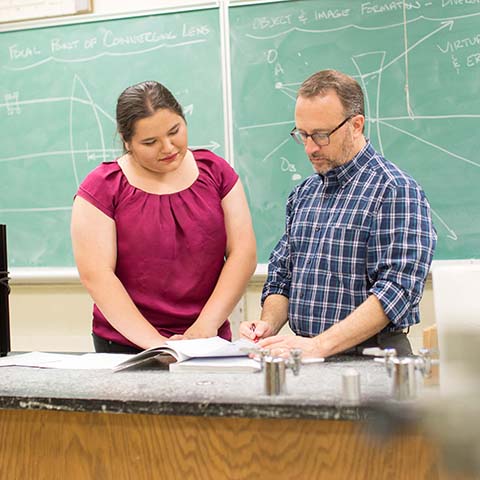The study of physics is the study of some of creation’s most inscrutable mysteries. Scripture tells us we are “fearfully and wonderfully” made. And few know that better than a physicist! Here you’ll study the laws of physics with a high regard for the creation’s God-given wonder, complexity, and amazing power.
Led by a nationally recognized physicist who maintains a research program at the university, our Department of Physics offers degrees that can launch you into engineering, biomedical physics, teaching and a range of other scientific and technical professions. Through the years, the department’s reputation for graduating well-prepared students has been — anything but theoretical. So chances are you already know something of string theory, game theory, condensed matter, particle attractions and more. It’s the “and more” we have ready and waiting for you.

Biomedical Physics
As medicine and biology advance, so does physics. So let us prepare you with chances to join in research and laboratory opportunities alongside of our seasoned faculty to develop a firm foundation in physics, chemistry and biology.
About Biomedical Physics
Physics
Study some of the physical world’s most inscrutable mysteries and examine the laws of motion and energy inherent in everything we do. Investigate the principles of physics with a high regard for creation’s God-given wonder, complexity, and amazing power.
About Physics
Physics Education
Physics education majors will receive core and specialized professional education in addition to the general education required of secondary and K-12 teacher education students. Educate young minds about the nature of our universe's fundamental elements, motion and energy.
Learn More
Mathematics/Physics Education
The need for qualified secondary math and physics teachers is critical. You can help fill this need through our unique program. Mathematics/Physics teaching majors receive core and specialized professional education in addition to the general education required of secondary and K-12 teacher education students. Educate young minds about the nature of our universe's fundamental elements, motion and energy.
Learn More